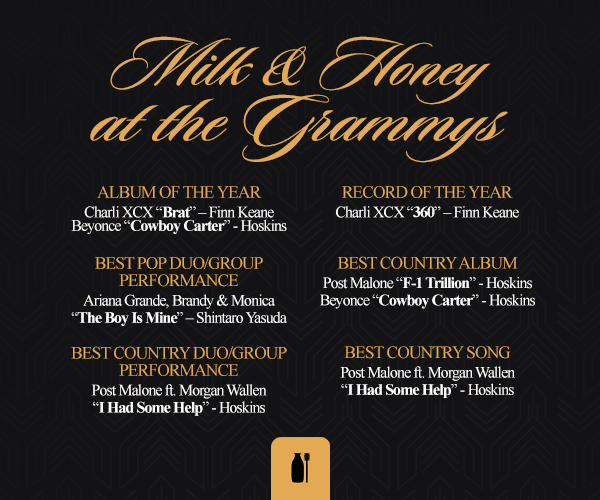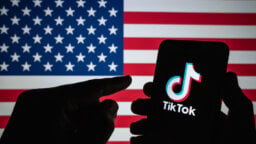What’s happened?
After an 18-month investigation, the US Department of Justice has filed a civil antitrust lawsuit against Live Nation, owner of Ticketmaster, for what it says is “monopolization and other unlawful conduct that thwarts competition in markets across the live entertainment industry.”
The lawsuit didn’t come as a surprise to either Live Nation or the broader music industry; various news stories over the past year had reported on the DoJ’s investigation, and Live Nation itself addressed the probe on its earnings calls.
What wasn’t entirely certain was just how far the DoJ would go in addressing what it says are LN’s monopolistic practices – and it went for the jugular, asking the US District Court for the Southern District of New York to order the break-up of the company, so that Live Nation and Ticketmaster would once again be two separate entities after spending 14 years under one corporate roof.
Even before the DoJ’s case has begun, it’s threatening to unleash an avalanche of legal headaches for Live Nation. It has already spurred a $5-billion class-action from a group of consumers, in what Reuters says could be “the first in a likely wave of new consumer antitrust lawsuits” against the company.
Legal analysts say the fact that the DoJ, under then-President Obama, approved the merger in the first place in 2010, and came to another agreement over alleged monopolistic practices in 2019, means it could have a hard time convincing the court today that breaking up Live Nation/Ticketmaster is a necessary remedy to the problems it alleges.
Yet the political environment of our era is notably different from the Obama era. Live Nation argues that the antitrust case against it is the result of the US government succumbing to a “populist urge” in the body politic, and indeed we are living through a populist era.
But the bad news for Live Nation is a previous populist era, just over a century ago, gave rise to the the grand-daddy of US corporate breaks-ups: The 1911 Supreme Court decision to divide John D. Rockefeller’s Standard Oil into 34 separate companies (many of which became recognizable oil and gas brands such as Exxon, Mobil, Amoco, Chevron, etc.).
Since that time, however, US courts have shifted towards a more pro-business stance – not to mention, businesses have rarely dominated their markets on the scale of Standard Oil, which at its peak controlled 91% of the refined petroleum market in the US.
The Microsoft precedent
Perhaps the closest parallel to Standard Oil in more recent history would be the antitrust case against Microsoft over its dominance of the web browser market in the 1990s.
In that case, the US took Microsoft to court, arguing the tech giant had abused its monopoly power by limiting the ability of PC users to switch away from Microsoft’s Internet Explorer browser. In 2000, a US district court ruled against Microsoft, and ordered that the company be split in two, with one company producing the Windows operating system, and the other producing software like Internet Explorer.
However, that ruling was overturned on appeal. Notably, however, part of that decision had to do with unethical behavior by the judge in the original case, and not the merits of the case itself. Nonetheless, in 2001 – with a new Republican administration in the White House – the DoJ announced it was no longer seeking to break up Microsoft, and settled with the company out of court.
As part of that settlement, Microsoft agreed to allow PC manufacturers to install non-Microsoft software by default on their computers, and allowed access to its API to third party companies.
This case highlights two facts that are relevant to the Live Nation case: One, there are political aspects to antitrust investigations (i.e., some administrations will be more aggressive in pursuing the break-up of a business than others); and two, it’s not easy to legally break up a corporation under US antitrust law.
As always, in the Live Nation case, the burden of proof lies with the Department of Justice, and if it wants to force the separation of concert promoter/venue owner Live Nation from ticketing company Ticketmaster, it will have to overcome a number of challenges.
Below, we explore some of them.
Proving that Live Nation has monopoly power
If it wants to convince a court to break up Live Nation, the DoJ will have to show that the company enjoys monopoly power in its markets.
To be clear, it doesn’t need to prove that Live Nation is a monopoly, just that it enjoys monopoly power.
“Courts do not require a literal monopoly before applying rules for single firm conduct; that term is used as shorthand for a firm with significant and durable market power — that is, the long term ability to raise price or exclude competitors,” the Federal Trade Commission states in an explainer on monopolies.
Live Nation has been adamant, before and after the antitrust suit was filed, that it doesn’t enjoy this kind of power.
If it were a ticketing monopoly (Live Nation argues), it would be able to set prices in the market and charge unusually large fees for its services. But prices for tickets are set by the artists and sports teams, and much of the add-on fees that Ticketmaster charges goes to the venues themselves, the company says. Its own take of fees is 5% – much lower than the 37% charged by StubHub, the 25% taken by Uber and the 17.5% taken by Airbnb.
Furthermore (Live Nation argues), if it were a monopoly, it would have much higher profit margins. In its public response to the antitrust suit, Live Nation produced a chart showing its own net profit margin at 1.4% in the most recent full fiscal year, much lower than ultra-profitable tech firms like Meta Platforms (29.8%), Apple (25.3%), and Google owner Alphabet (24%).
Case closed? Not necessarily. In its submission to the court, The DoJ asserts that Live Nation’s global ticketing business – separate from its concerts business – had a “nearly 40%” adjusted operating margin in 2023. (Live Nation’s annual report shows a 37.7% AOI margin for the year).
And the DoJ makes another (circumstantial) argument that Live Nation enjoys monopoly power specifically in the US: “In the United States, where Live Nation maintains a high market share in arenas and amphitheaters through its exclusive contracts and owned and operated venues, Ticketmaster has much higher fees relative to other countries notwithstanding comparable costs.”
The DoJ is arguing that Live Nation’s vertical integration across different aspects of live events (ticketing, promotion, venues) gives it monopoly power in ticketing. That argument could run into some problems.
For one, the DoJ didn’t object to LN’s vertical integration back when it approved the merger (more on that below), and for another, LN’s concert division isn’t nearly as profitable. In fact, in 2023 it clocked an adjusted operating margin of -0.3%, a loss of around $63.6 million worldwide. (Its low overall margin is due to the fact that its concerts business is by far the largest part of its business by revenue.)
In a column at Forbes, Alden Abbott, a former General Counsel for the Federal Trade Commission and an antitrust expert, points to a DoJ report which states: “Monopoly power requires that the firm be able profitably to charge prices high enough to earn a supernormal return on its investment.“
The DoJ might be able to argue credibly that Live Nation’s ticketing business has a “supernormal” return on its investment, but it will be hard-pressed to do so for Live Nation as a whole. And if Live Nation is able to leverage its monopoly power to earn large margins on its ticketing business, why can’t it leverage that power to turn any sort of profit at all in its concerts business?
Proving that Live Nation engaged in illegal ‘exclusionary or predatory acts’
“Obtaining a monopoly by superior products, innovation, or business acumen is legal,” the FTC notes in its explainer on monopolies. “However, the same result achieved by exclusionary or predatory acts may raise antitrust concerns.”
The DoJ is arguing that Live Nation did, indeed, use predatory and exclusionary practices to build its business; Live Nation is arguing it ended up with a large share of the ticketing and concerts business by offering superior products.
“One of the most jaw-dropping parts of [the DoJ’s] complaint is the assertion that there are ‘barriers to entry’ because ‘artists naturally prefer to work with a promoter who is successful in promoting many high-demand shows at popular venues’ – namely, Live Nation,” the company said.
“That is a supreme expression of competition on the merits, winning by being better. But to [the DoJ] it’s anticompetitive.”
All the same, the DoJ’s complaint contains some allegations that could certainly be construed by some as “exclusionary or predatory.”
“In 2021, Live Nation threatened commercial retaliation against private equity firm Silver Lake, unless one of its portfolio companies, TEG, stopped competing with Live Nation for artist promotion contracts in the United States,” the DoJ alleges.
It points to an email exchange between Live Nation CEO Michael Rapino and a co-founder of venue operator Oak View Group, in which Silver Lake is an investor.
“Live Nation’s CEO complained to Oak View Group’s co-founder that TEG was ‘[f]ull on competitors,’” the DoJ complaint states. “Oak View Group, in turn, conveyed to Silver Lake that Live Nation was ‘not happy.’ Live Nation’s CEO then escalated his complaints to Silver Lake directly, conveying: ‘I am all in on [Oak View Group] where the big play lies with venues – why insult me with this investment in ticketing/promotions etc.’
According to the DoJ, TEG set up a deal with Ticketmaster competitor StubHub to sell tickets for a “big-name artist” at the Los Angeles Coliseum – a venue with which Live Nation had an exclusive ticketing deal.
“In response, Live Nation… threatened to deny entry to any fan using a StubHub-issued ticket. Ultimately, StubHub stopped selling tickets and attempted to work with Ticketmaster to fulfill the tickets that it had already sold. But Ticketmaster failed to fulfill many of those tickets to StubHub’s customers, and hundreds of StubHub’s customers were refused entry to the event.”
No doubt, Live Nation will argue that it was well within its rights to sign an exclusivity deal with the Los Angeles Coliseum – these types of deals have been “prevalent in the primary ticketing business for decades,” LN says.
Yet the DoJ has opted for a jury trial, and it’s well known jurors can be swayed by emotion. Rapino’s attitude (taking the prospect of competition as a personal insult), and fans being denied entry through no fault of their own, are exactly the sort of thing that could sour a jury on Live Nation in this case.
Proving Live Nation’s practices harmed consumers
However, one case of fans being turned away at the gate does not make an antitrust case. A key element in US antitrust law is that, to prove that a business is illegally enjoying monopoly power, you have to show that consumers were harmed.
Live Nation’s argument is that, if consumers are being harmed, it’s not due to Live Nation’s actions.
The DoJ “ignores everything that is actually responsible for higher ticket prices, from rising production costs, to artist popularity, to 24/7 online ticket scalping that reveals the public’s willingness to pay far more than primary ticket prices,” Live Nation wrote.
In Abbott’s view, the fact that Live Nation has little control over the actual price of tickets could be where the DoJ’s case falls apart.
“To the extent that [Live Nation] can factually support these statements in litigation, DoJ will find it hard to show that breaking up or otherwise sanctioning the company will make consumers better off,” he wrote.
However, Bill Baer, who has served as an antitrust lawyer for both the Department of Justice and the Federal Trade Commission, isn’t so sure this defense will hold up – because of all the other behavior by Live Nation that the DoJ is alleging.
“The complaint puts a lie to a lot of that,” he said, as quoted by Rolling Stone.
“It shows how in their internal communications, [Live Nation] worked to block competition, pressure artists to go through them, [and] control so many different key venues.”
The ‘changed-our-minds’ problem
Another key issues the DoJ will have to overcome is the likely perception that the department “changed its mind” about Live Nation as a monopoly – after all, it did approve the Live Nation/Ticketmaster merger, with some conditions, back in 2010.
The DOJ’s argument now is that the problem with Live Nation is one of vertical integration: The fact that Live Nation is a ticketing company and a concert promoter and a venue business is why they are able to exercise monopoly power, the DoJ argues. And yet it didn’t see it that way back in 2010.
In a speech that year, Christine Varney, an assistant Attorney General for antitrust at the DoJ, said the department was “not convinced” it could make a case that the vertical integration of Live Nation and Ticketmaster would reduce competition.
“We did conclude, however, that Ticketmaster was dominant in primary ticketing, and the remedies that we secured will ensure that competition is preserved in that important realm and that Ticketmaster’s power in ticketing will not wend its way into other levels of the live music supply chain,” she said.
So what changed since 2010? The DoJ may find itself having to argue that it was wrong back then in its assessment of the impact of the merger on competition. And if it was wrong back then, why can’t it be wrong now, too?
Live Nation “is sure to stress that by ‘passing’ on the initial merger… DoJ has conceded that competition has not been substantially lessened,” Abbott wrote. “That being the case, [Live Nation] may assert that DoJ cannot credibly argue for [Live Nation being a monopoly] now, and is acting inequitably by trying to get an unfair ‘second crack at the apple.’”
A final thought…
Even if the Department of Justice proves its case and prevails, analysts say there’s a good chance that breaking Ticketmaster off from Live Nation won’t actually help consumers – i.e., it won’t result in lower ticket prices.
Many analysts agree with Live Nation’s assessment that the things that are causing ticket prices to rise are beyond Ticketmaster’s control – perhaps most of all, skyrocketing demand.
“The real issue keeping costs high and supply low when it comes to the hottest tours is a basic one of supply and demand,” Bill Werde, director of the Bandier music program at Syracuse University, told news service TND. “Even then, if we wanted to [reduce] ticket prices or give artists more control, we could address that legislatively through caps on resale.”
Werde added that he thinks the lawsuit “is more about politics than it is about helping music fans.”
Yet even preventing the resale of tickets might not help; with everyone who once bought from scalpers and resellers now piling into the primary ticketing market, it might just drive up initial ticket prices instead.
Ultimately, the only real solution to the underlying problem might be something over which the Department of Justice has no control, and companies like Live Nation can only make happen slowly over time: More artists, more shows, and more venues, to fix the imbalance between supply and demand. We might need more developers building, and more A&Rs scouting.
In that respect, Live Nation’s legal fight with the US might be pointing to the fact that the music industry has the kind of problem any business would be lucky to have, even if it does frustrate the fans.Music Business Worldwide





